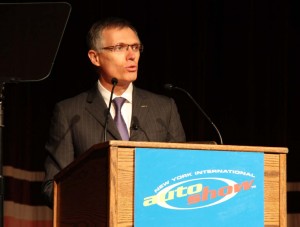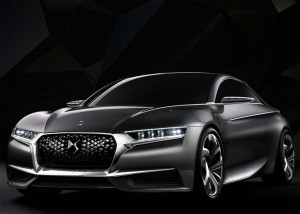A quarter-century after it abandoned the American market, much to its later regret, France’s PSA Peugeot Citroen is planning its return, according to the maker’s CEO.
But rather than simply opening up a new dealer network, a strategy has had marginal benefits for Fiat, the Italian maker that also quite the U.S. market, PSA is looking at alternatives that could include using mobility and car-sharing programs to establish an American presence, suggested Chief Executive Carlos Tavares, during a presentation to analysts and investors.
The former second-in-command at French rival Renault, Tavares has been credited with orchestrating an unexpected turnaround at PSA. It is now generating its strongest profits since the turn of the millennium, notes Automotive News, after nearly plunging into bankruptcy just two years ago.
(Peugeot, Citroen among those with big Geneva Motor Show debuts. Click Here for more.)
But a key roadblock to even greater numbers is the lack of a presence in the American market, Tavares has concluded. PSA was one of a handful of European makers to give up on the U.S. in the early 1990s, a group that included rival Renault, as well as Italy’s Fiat.
PSA has been studying its options for a return, and laid out at the meeting a three-step plan for the U.S.
The first phase, said Tavares will be “to start as a mobility operator from 2017, possibly with Bollore.” That’s a French firm established by billionaire Vincent Bollore that has developed its own battery-electric vehicles for various car-sharing programs it operates. That includes the French service Autolib, as well as BlueIndy. The latter venture went into operation late last year in Indianapolis.
(Click Here for more on BlueIndy.)
The second phase would see PSA “develop(ing) mobility solutions using our cars,” according to Tavares. Those cars could be used in car-sharing or leasing programs, but would not be sold directly to consumers.
Only then, if PSA finds itself gaining traction, said the CEO, would the company move “to sell cars in the U.S.”
The go-slow approach is the latest in a series of possible plans aimed at staging a U.S. return. In 2014, Automotive News reported that PSA’s new premium brand, DS, had considered entering the U.S. as part of its plan to become a global luxury player. DS CEO Yves Bonnefont at the time was looking at 20 cities in the U.S. Tavares seemed to dismiss that option soon after joining PSA.
The relatively new DS never participated in the American market, though both Citroen and Peugeot had a small presence over the decades, pulling out during an economic downturn in 1991. They weren’t alone – nor is PSA the only maker to regret that move.
Following its takeover of Chrysler following the Detroit maker’s 2009 bankruptcy, Fiat relaunched an American distribution network, but sales have so far run well below the brand’s expectations. What is now known as Fiat Chrysler is also struggling to build momentum for the Alfa Romeo brand which returned to the States in 2014.
As for Renault, Tavares’s former boss, CEO Carlos Ghosn, has also given thought to an American revival but appears to have ruled that out for anytime soon. Instead, the French maker is letting its Japanese alliance partner Nissan serve as its American presence.
(Mazda teases new CX-4 ahead of Beijing debut. Click Here to check it out.)


